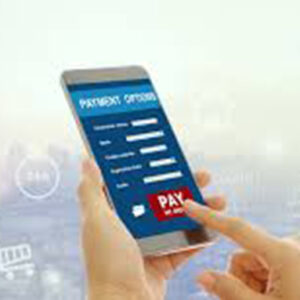Electronic Payment Systems
2023 年 2 月 3 日 | DSE English
Electronic payment systems, such as the Octopus, Alipay and WeChat Pay, are so prevalent that not only do they perform the general means of payment, but also serve as identity verification. These common practices, in fact, have posed various kinds of risk to their users.
Write an essay discussing the risks associated with the widespread use of these electronic payment systems.
About two decades ago, the Octopus card was introduced in Hong Kong. With the lapse of time, its use has not only applied to the MTR service, but also extended to the places such as cinemas, convenience stores, supermarkets, and anywhere you would go. Recently, it has evolved into an extra form: a kind of electronic wallet to further its convenience. Other electronic payment systems ranging from Alipay and WeChat Pay to BoC pay have also emerged to seize a share in the payment system market over years. Although the rapid development of this technology benefits the users in terms of shopping convenience and working efficiency, it also puts us at risk.
The proliferation of electronic payment system exposes the users to unnecessary financial risks. These electronic devices let us go anywhere in the city without carrying too much cash. Even better, when users tie up their financial information such as bank account or credit card data to the system, this allows the automatic increase in value when cash is lacking in the electronic wallet. But this will arouse hackers’ covetous eyes by wishing to access these personal details and then leave users vulnerable to any acts of fraud. If their identity details are compromised, fraudsters can use it to obtain goods or finance from alternative sources. The loss is rarely small fry.
The function of identity verification would invade our personal privacy. Most economic payment means can act as a security pass to access the private housing estate, office or campus. This provides a way for others to mine the users’ private information. The personal data enables a third party to analyze our travel habits and spending patterns, and to send us some unsolicited direct-marketing materials. Worst still, no one can guarantee that the personal data will not fall into the wrong hands. This might make us end up with bad consequences such as extort and blackmail.
As far as money ethics is concerned, children can use these electronic means to buy snacks in tuck shops and to make miscellaneous school payments. Parents need not worry about their children carrying too much cash and can monitor their diet through the transaction records in the system. However, without the direct feel of disbursing money, children cannot learn something meaningful in respect of money management. They might take money for granted without knowing how hard it is earned. Parents will find it hard to help students develop a better spending habit, which is critical to their personal development.
We simply scan our wallet’s barcode over the reader and every ‘beep’ the system makes implies a successful deal. It leaves no doubt that the electronic payment system brings us a more efficient and joyful life. However, it is a double-edged sword. When we inadvertently misplace the electronic wallet, we might run into a great loss. So, we ought to weigh benefits against drawbacks carefully in enjoying such an electronic device.